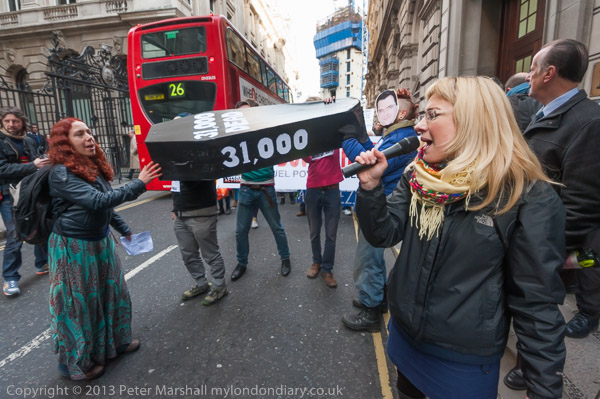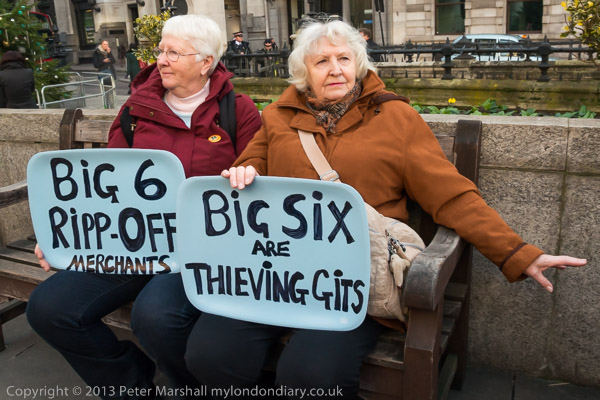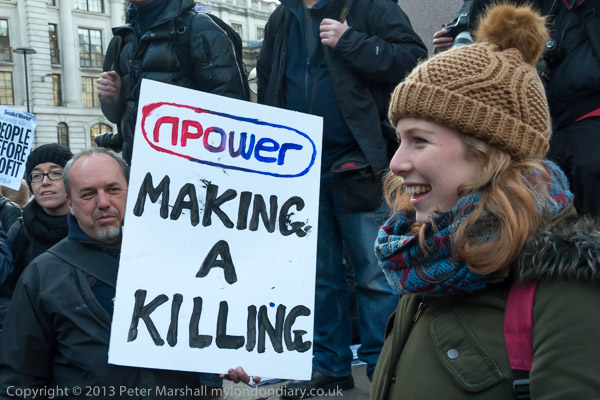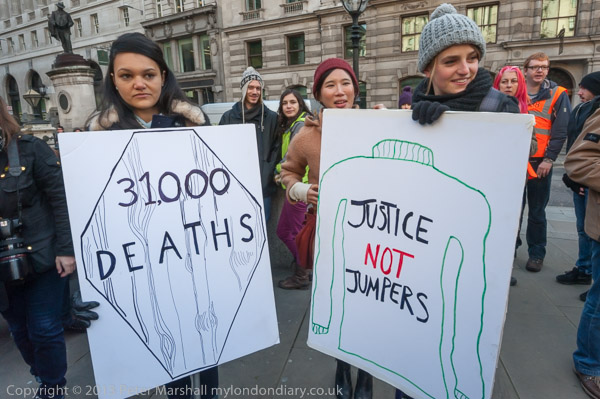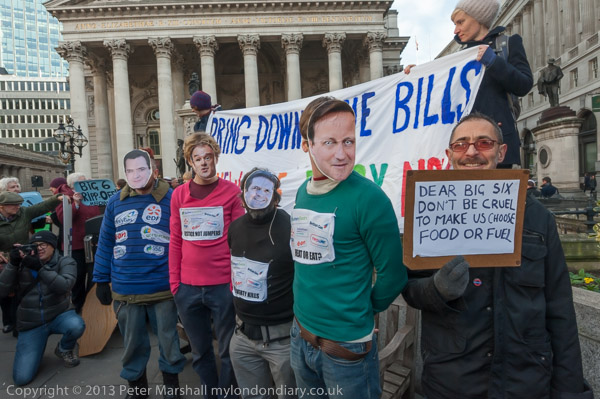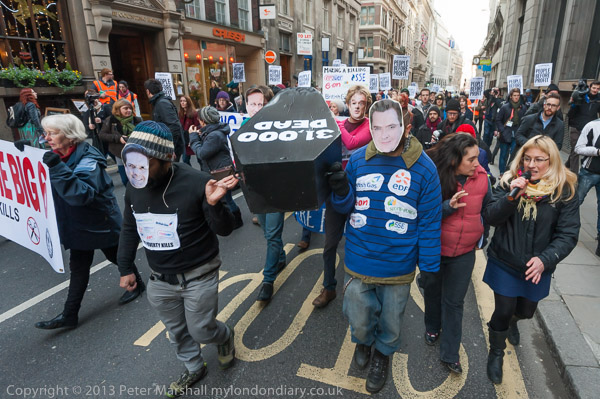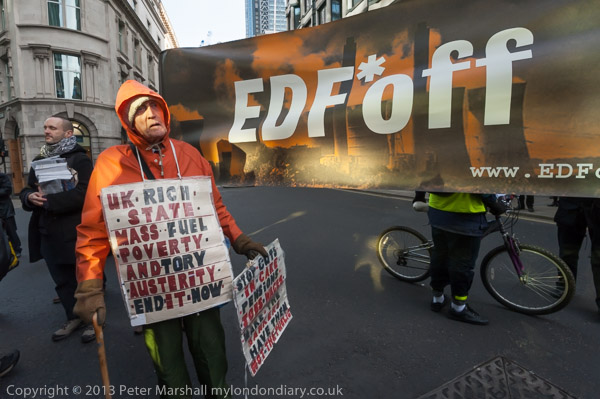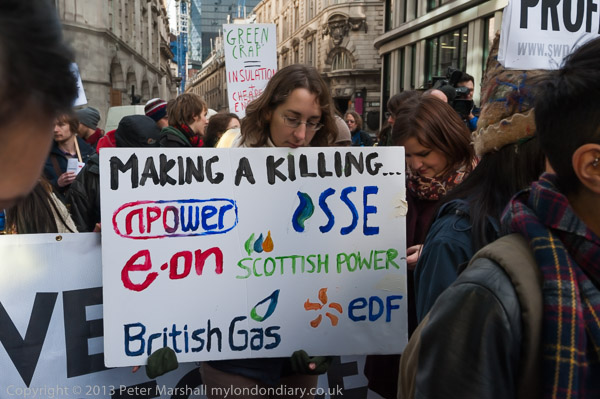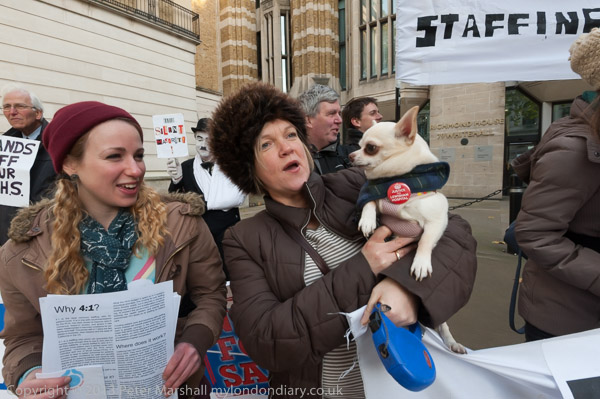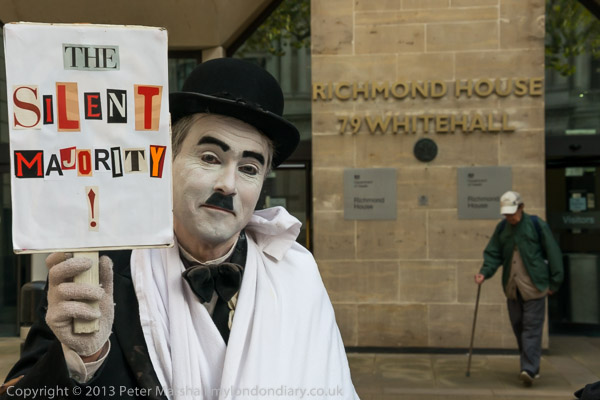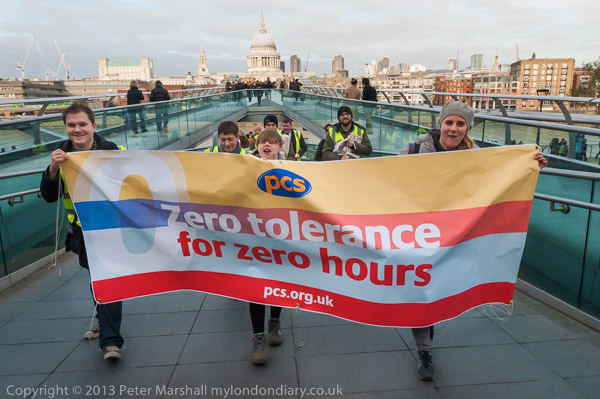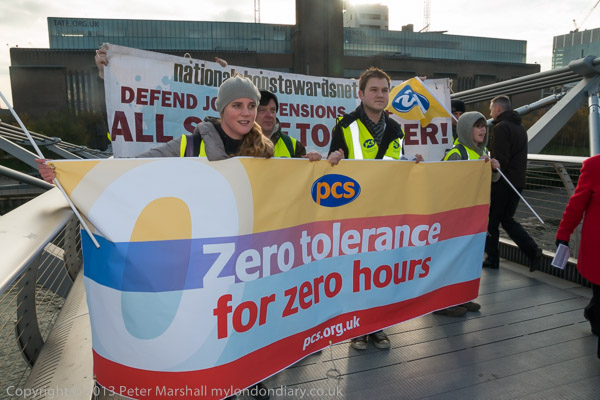Save Lewisham Hospital March & Rally – Saturday 26 January 2013

On Saturday 26th January 2013 an estimated 25,000 people marched through Lewisham to save their hospital from closure and to protect the NHS, showing south London united against the closure on pure financial grounds of its highly successful and much needed A&E and maternity departments.
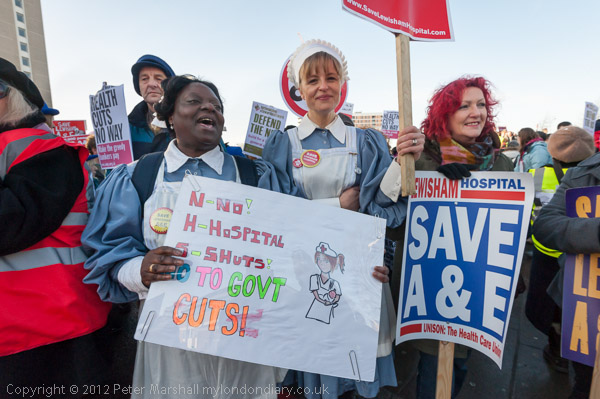
Now the whole NHS is facing a crisis, and a similar united response across the country is needed to save it. It becomes clearer and clearer that this crisis has been deliberately engineered in order to destroy our health service and hand it over to private providers, particularly the US health giants.
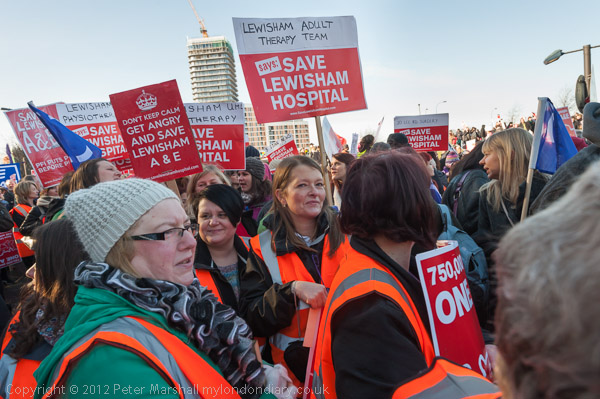
Two years ago, US health insurance giant Centene Corporation took over 49 NHS GP surgeries and practices. Now as Jeremy Corbyn posted a couple of days ago on Facebook, “US health insurance giant, Centene, is the single largest provider of NHS primary care in England. Privatisation is the cause of — not the solution to — the NHS crisis. Stop wasting money on private contracts and start investing in a fully-public NHS instead.“
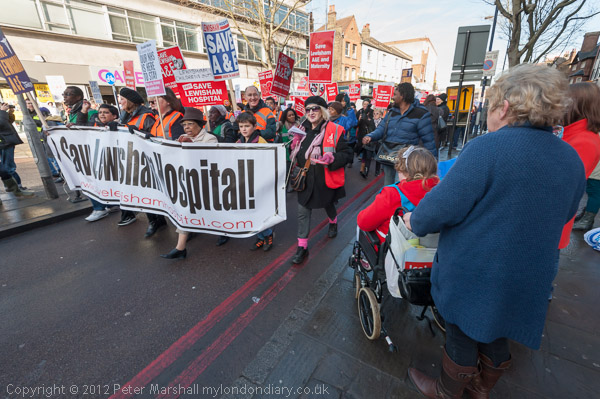
Unfortunately both Tory and Labour parties have taken part in the move towards privatisation of the NHS, though Tories have been more open in their support of such changes as suggesting the introduction of charges to see a doctor. But both parties have introduced changes which have brought private companies into providing NHS services, have taken large donations from private health companies, and have leading members who profit from them.
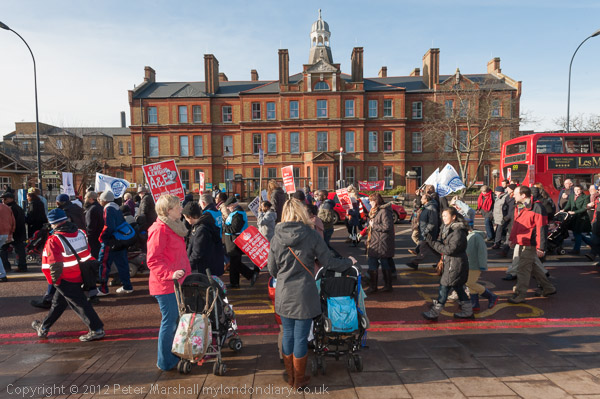
It was under Labour that the NHS took on poorly thought out Private Finance Initiative contracts that have landed many local health trusts with huge debt repayments, many of which extend to the middle of the century, and it was these which led to the crisis in Lewisham.

The PFI contracts were negotiated by civil servants and were and are a bonanza for private companies. Under them we pay totally ridiculous charges for simple jobs – such as Hull and East Yorkshire Hospitals Trust paying £8,450 to install a dishwasher because they are locked into maintenance contracts. Changing a light bulb can cost a couple of hundred pounds.
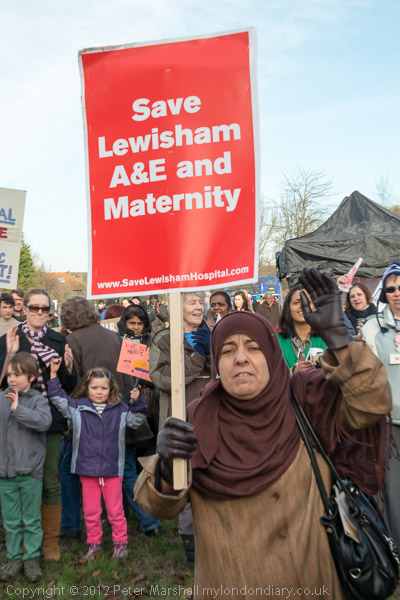
Lewisham Hospital wasn’t directly affected by PFI, but it was in 2009 put into the South London Hospitals Trust, which had two hospitals at Orpington and Woolwich whose PFI contracts saddled the trust with debts of over £60 million a year until 2032.
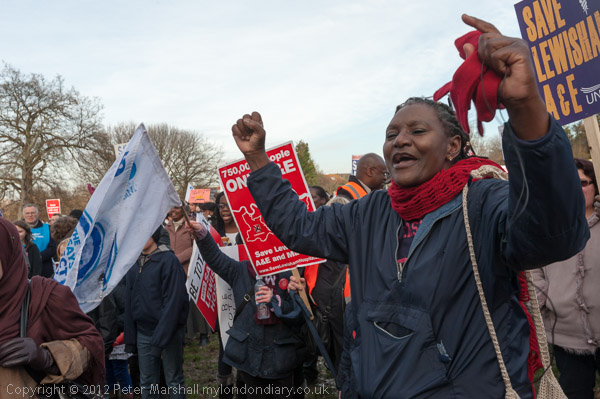
Lewisham Hospital was successful both medically and financially, but Health Secretary Andrew Lansley appointed a special administrator to the trust with a remit to drastically cut the trusts costs. And Matthew Kershaw decided to do so by closing the highly successful and much needed A&E and maternity departments at Lewisham.
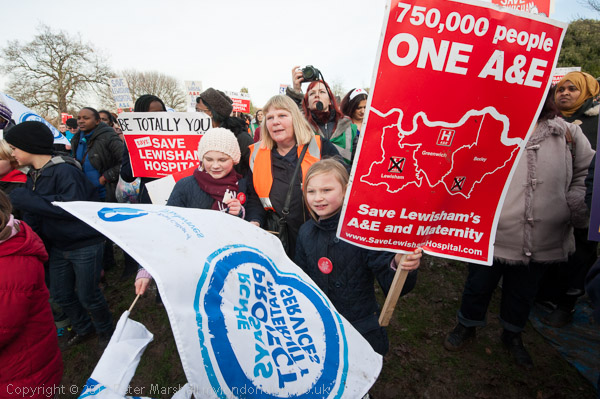
It was a decision that made no sense. There wasn’t the spare capacity at other hospitals to cope with those no longer able to get treatment at Lewisham – the system was actually working in the other direction, with these other hospitals having to send patients to Lewisham.
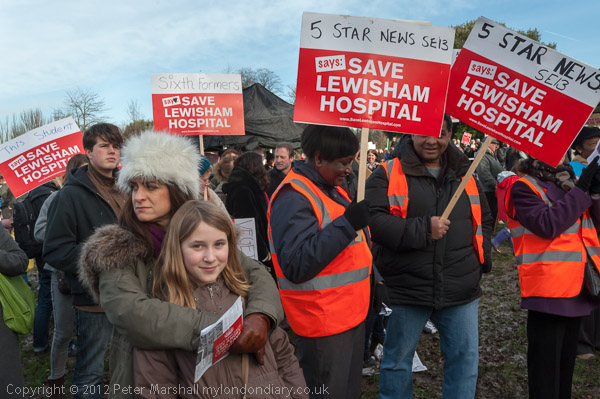
Financially it made no sense – the patients would still require treatment and this would cost more elsewhere. The small annual savings the closure would give would be more than offset by increases in costs elsewhere – though some of these might be in other trusts.
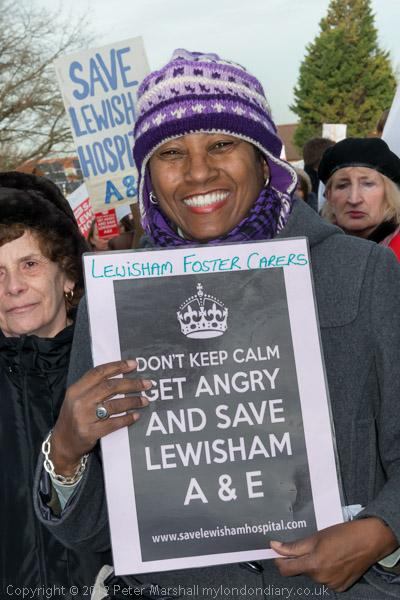
The proposal generated an incredible amount of local opposition, with the campaign to save the hospital supported by all local MPs and policitician both in the area and across south London. Community groups and organisations all came together to save the hospital – Millwall football club even changed their weekend fixture to Friday night so the team and supporters could join the march.

As I wrote back in 2013, “The fight to save Lewisham Hospital isn’t just a local issue, but very much a national one, with the provision of medical services that form the bedrock of the NHS under attack. If the government can close down services at Lewisham, no other successful hospital in the UK is safe in their hands.”
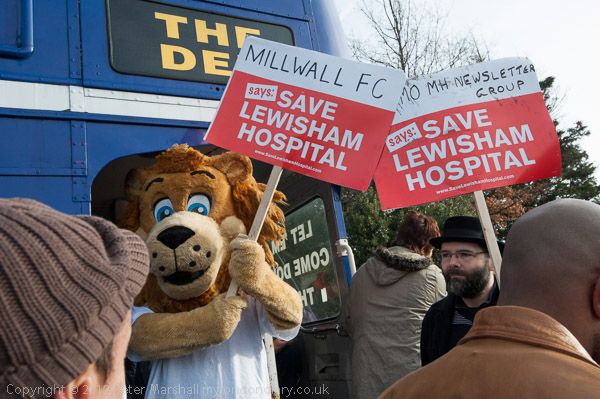
Nurses and ambulance workers are now striking not just for a better deal for themselves, but for the future of the NHS, which the Tories have deliberately run down with drastic underfunding and a deliberate failure to train and recruit staff. Perhaps their most obvious action was the removal of the bursary for nurse training, but as well there has been the continuing decrease in real salaries with below inflation wage rises over the years. Together with the failure to keep European staff in this country after Brexit and the impact of Covid the results have been disastrous – except for those private companies providing agency nurses and doctors, often at horrific cost to the NHS.
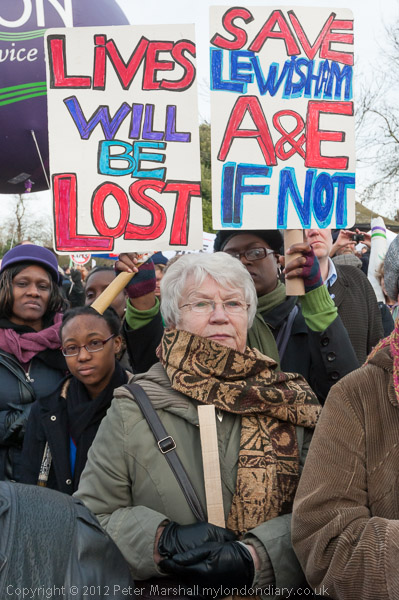
If the NHS is to be saved it will need the kind of public mobilisation that saved Lewisham Hospital, with the people as a whole getting behind the nurses and doctors and others who are fighting to save it. We need to fight the policies and greed of the Tories and of Labour and of the billionaire press to preserve the NHS as a national service free at the point of use and organised for the national good rather than for profit.
More pictures at Save Lewisham Hospital
